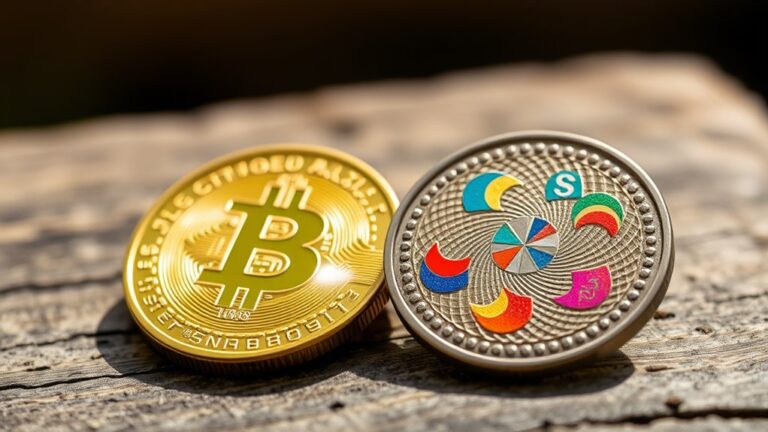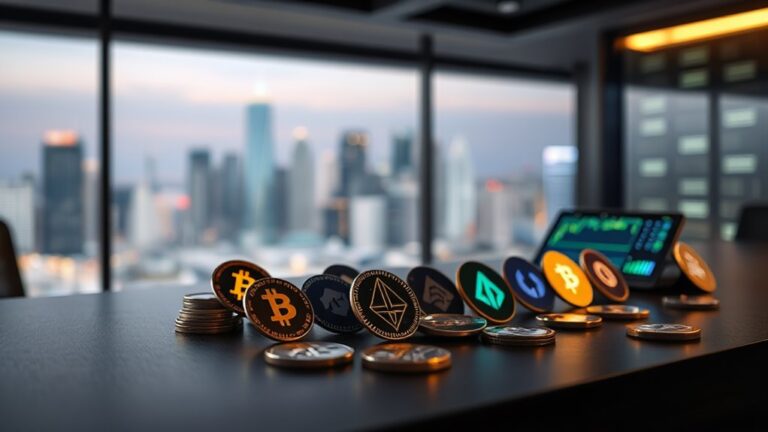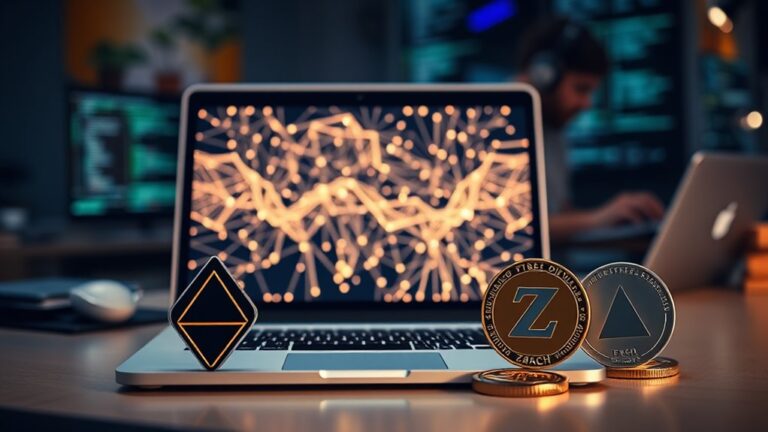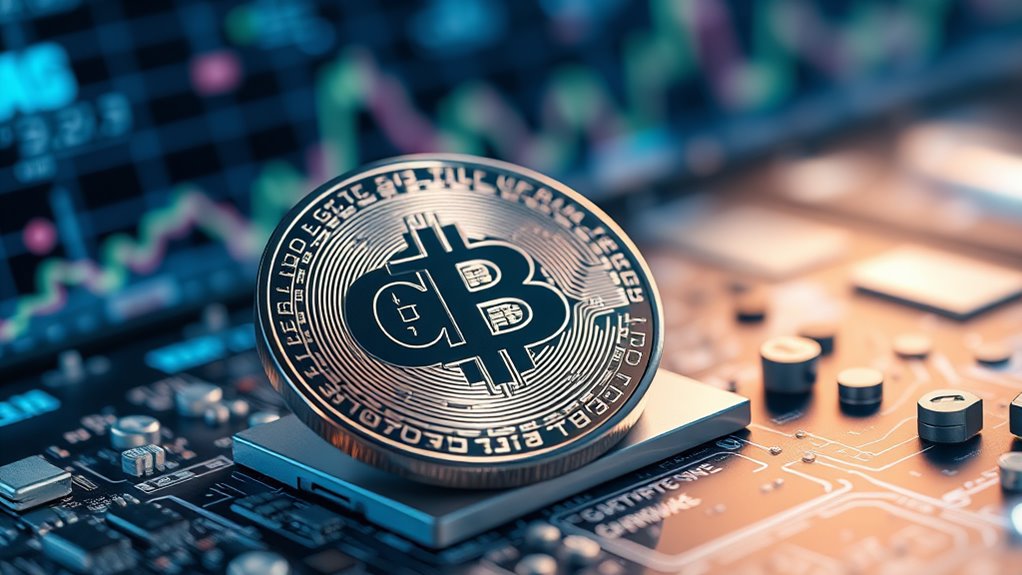
Governance Token: Unlock Its Power and Purpose in Cryptocurrency
Governance tokens empower cryptocurrency users by giving them voting rights in blockchain projects. These tokens facilitate decentralized decision-making, shifting control from central authorities to community stakeholders. Token holders can vote on proposals, influencing crucial protocol aspects. Governance tokens encourage community engagement, offering fee-sharing benefits like passive income. Acquired through purchasing, staking, or airdrops, they present challenges like centralization and voting manipulation. Exploring their potential offers insights into shaping blockchain governance.
Key Takeaways
- Governance tokens enable holders to directly participate in decision-making processes within decentralized blockchain projects.
- Voting power, often proportional to token holdings, allows stakeholders to influence protocol updates and governance decisions.
- They decentralize control from central entities to the community, fostering a democratic environment in DeFi platforms and DAOs.
- Tokens offer economic incentives like passive income through trading fee distributions, encouraging community engagement.
- Challenges include the concentration of power and potential manipulation, necessitating fair voting mechanisms like quadratic voting.
Understanding Governance Tokens: Basics and Benefits

Governance tokens are an essential innovation in the world of cryptocurrency, offering participants the unique ability to engage directly in the decision-making processes of blockchain projects. These tokens play a significant role in decentralized finance (DeFi) platforms and decentralized autonomous organizations (DAOs), empowering community-driven governance. Holders can vote on proposals that determine the trajectory of projects, using models that incorporate both on-chain and off-chain decision-making methods. Token issuance typically occurs via smart contracts, and the number of tokens a user holds often dictates their voting power, although alternative systems exist. Governance tokens encourage community engagement by distributing control among stakeholders. Furthermore, they can provide holders with fee-sharing opportunities, allowing them to earn passive income from the trading fee distributions within decentralized exchanges. In addition, projects manage proposals and voting through dedicated governance portals, incentivizing participation through rewards.
Exploring the Decentralization of Power

How does the decentralization of power reshape the landscape of blockchain governance? By shifting control from centralized entities to communities, it creates a democratic environment where stakeholders have meaningful influence.
Governance tokens distribute voting rights, ensuring the community's views are represented in decision-making processes. Decentralized Autonomous Organizations (DAOs) exemplify this, using tokens with smart contracts to drive decentralized actions. Introduced prominently in 2016, DAOs have become a cornerstone of decentralized governance models. DeFi platforms utilize these models, enabling peer-to-peer lending and other financial activities without traditional intermediaries.
Governance tokens enable communities to influence decisions through DAOs, pivotal since 2016.
Despite providing broader participation, challenges exist, such as potential centralization if few control many tokens, and the intricacy of governance procedures. Furthermore, market fluctuations and technical setbacks may pose stability risks.
Nonetheless, the engagement and transparency fostered by decentralization accentuate its transformative role in blockchain governance.
Mechanisms and Processes of Governance Token Voting
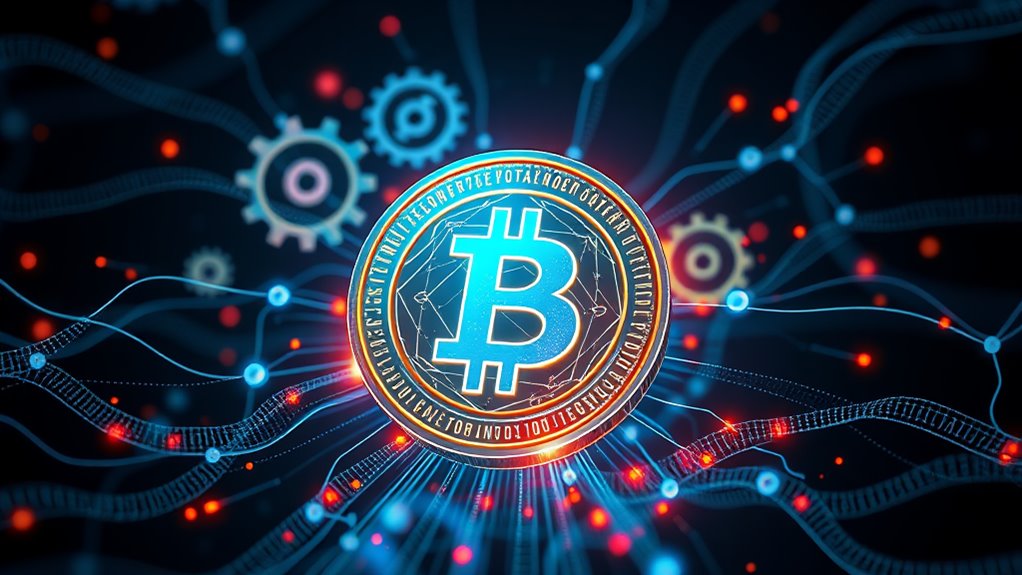
In a world increasingly influenced by decentralized decision-making, the mechanisms and processes of governance token voting play a pivotal role in shaping blockchain ecosystems. Governance tokens operate within decentralized autonomous organizations (DAOs), where one token usually equals one vote.
Community members draft proposals for changes, and these are subject to voting requirements like minimum participation thresholds. Votes are transparently recorded and enforced through smart contracts, ensuring integrity.
Specialized voting mechanisms also exist, such as quadratic voting to prevent wealth concentration, and liquid democracy, allowing delegation to experts. Despite these structured processes, challenges persist, including low turnout and potential manipulation.
Yet, successful examples, such as Uniswap and MakerDAO, demonstrate the impactful execution of governance protocols within the cryptocurrency landscape.
Stakeholder Engagement and Community Participation
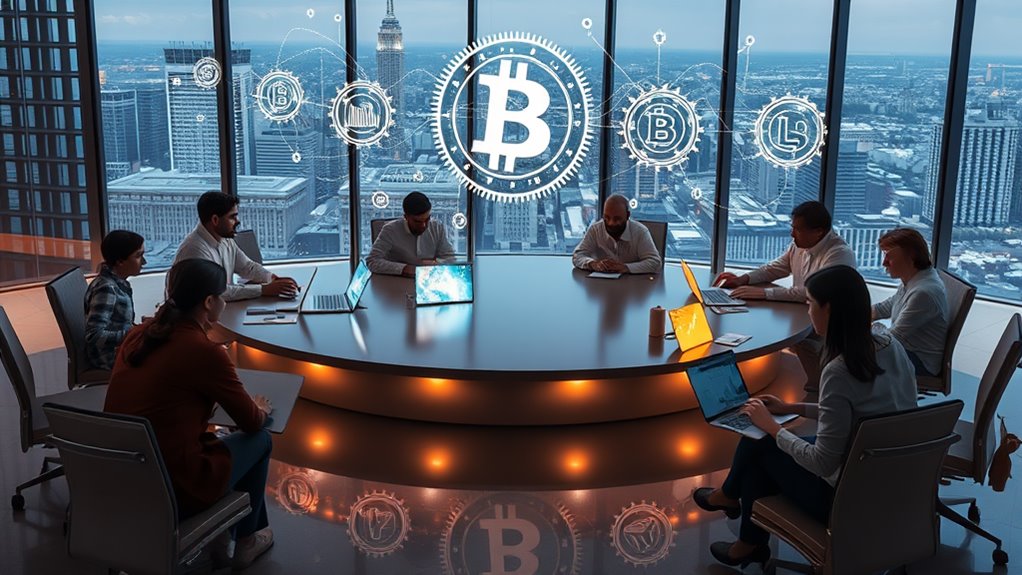
Why do governance tokens matter so much in the world of cryptocurrency?
They empower stakeholders with decision-making power and voting rights, allowing them to influence key aspects like protocol updates.
This fosters a greater sense of collective responsibility and ownership, encouraging collaborative governance processes.
Participation is incentivized economically, deepening stakeholder engagement and investment.
Real-World Examples of Successful Governance Tokens

Some governance tokens in the cryptocurrency world have proven exceptionally successful, setting standards for how decentralized decision-making can be implemented.
Examples include:
- Uniswap (UNI): This token has been vital for facilitating governance decisions, allowing users to propose and vote on updates, protocol changes, and other matters that enhance community involvement in the Uniswap platform.
- Compound (COMP): As a leading DeFi platform, it allows token holders to participate in significant governance votes that decide on interest rates and system upgrades.
- Aave (AAVE): Used for voting on improvements and risk parameters, reinforcing the lending platform's decentralized nature.
- MakerDAO (MKR): Essential for managing the stablecoin DAI, it provides holders the power to vote on key parameters affecting the stablecoin's stability.
These examples highlight how governance tokens function effectively in real-world scenarios.
How to Acquire and Utilize Governance Tokens
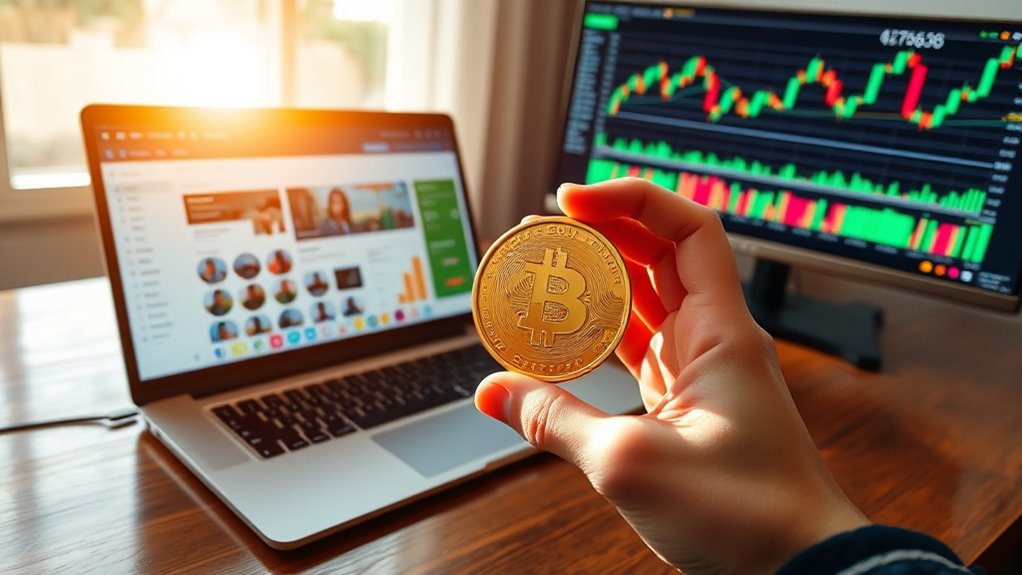
Having explored successful governance tokens in action, attention now turns to understanding the methods of acquiring and using these digital assets. Governance tokens can be obtained through various channels such as purchasing on secondary markets like Kraken or participating in Initial Token Offerings (ITOs). They may also be distributed via airdrops, attained by staking native tokens, or earned by reaching usage milestones within a protocol.
Once acquired, governance tokens play a significant role in decentralized autonomous organizations (DAOs), granting holders voting power on proposals. They allow token holders to submit proposals, facilitating decentralized decision-making through smart contract integration.
Additionally, governance tokens incentivize community engagement by offering benefits such as passive income opportunities and increased project involvement, although challenges like the "whale problem" persist.
The Future of Governance Tokens in Cryptocurrency Ecosystems

As the cryptocurrency landscape continues to evolve, governance tokens are poised to play a pivotal role in shaping future ecosystems. These tokens drive technological, regulatory, and economic advancements, bolstering governance capabilities and market adaptability.
Prominent evolutionary trends include innovations in voting systems like quadratic voting, which enhance fairness and inclusivity. Cross-chain governance facilitates decision-making across multiple blockchains, while AI-aided tools optimize engagement by providing data-driven insights. Enhanced incentives are critical, motivating increased participation through rewards and secure processes.
- Advanced Voting Systems: Improved fairness with innovative models.
- Cross-Chain Governance: Enables complex decision-making processes.
- Community Engagement Tools: AI supports informed decision-making.
- Enhanced Incentives: Encourages active engagement in governance.
These developments underscore the transformative potential of governance tokens in facilitating decentralized platforms.
Frequently Asked Questions
How Do Governance Tokens Impact the Legal Compliance of Projects?
Governance tokens impact legal compliance by decentralizing decision-making, which can complicate jurisdictional compliance and securities classification. They necessitate transparent processes to meet auditing standards and influence regulatory adaptations to accommodate decentralized governance models.
What Are the Risks Associated With Holding Governance Tokens?
Holding governance tokens presents risks like centralized control, whale dominance, regulatory uncertainties, market volatility, and susceptibility to attacks or manipulative influences, potentially undermining the decentralized and democratic intentions of crypto projects while challenging compliance and security.
Can Governance Tokens Lose Their Value Over Time?
Research shows that 26% of governance tokens experience significant value loss within the first year. Factors such as speculative demand fluctuations, changing regulatory environments, and concentrated ownership contribute to their potential depreciation over time.
Are There Limitations to Voting Power Concentration in Governance Tokens?
Concentration of voting power in governance tokens can lead to imbalanced decision-making, often dominated by a few large holders. This skews governance away from decentralized ideals, risking decisions that do not reflect the broader community's interests.
How Do Governance Tokens Interact With Other Blockchain Technologies?
Governance tokens interact with blockchain technologies through smart contracts, DAOs, and DeFi. They enable automated decision-making, decentralized control, and protocol management. Different voting mechanisms guarantee fairness and prevent power concentration, aligning stakeholder interests with technological success.
Conclusion
Governance tokens, like the key to a well-guarded treasure chest, reveal the potential for inclusive decision-making and power distribution in cryptocurrency ecosystems. By enabling decentralized control and community engagement, these tokens facilitate a collaborative and democratic approach to development and evolution. The mechanisms for voting and participation are integral to ensuring accountability and transparency. As the cryptocurrency landscape continues to evolve, the relevance and influence of governance tokens are set to expand, shaping future innovations and practices.

